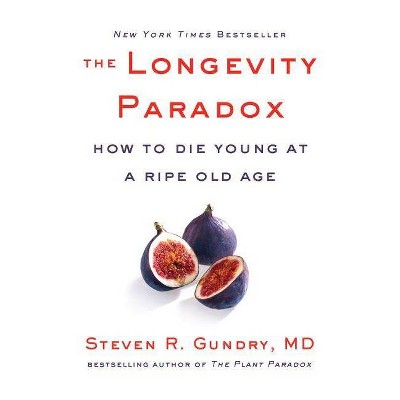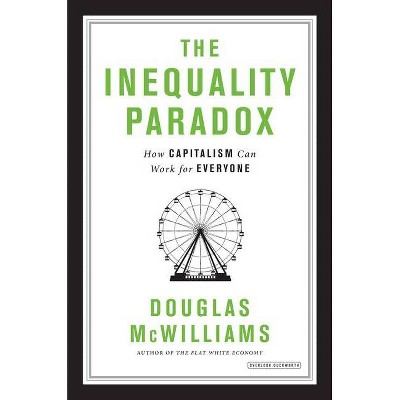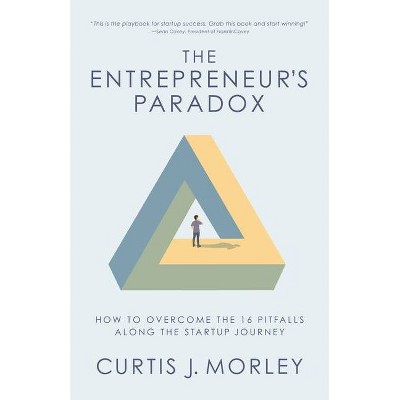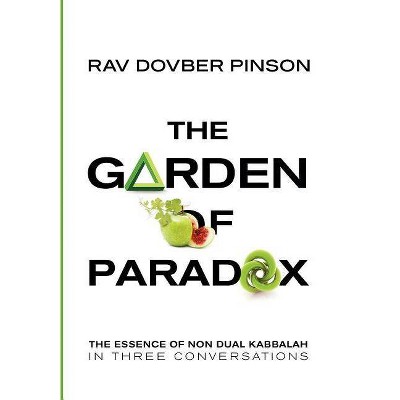The Profit Paradox - by Jan Eeckhout (Hardcover)
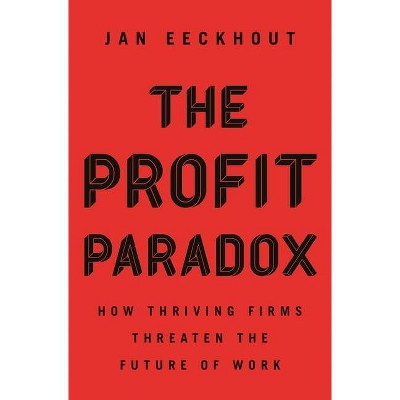
Similar Products
Products of same category from the store
AllProduct info
<p/><br></br><p><b> About the Book </b></p></br></br>"A book on why most things are more expensive or lower quality, and why we're all still working long hours for the same or lower wages. Does it ever seem like most things you buy are more expensive or not as good as they once were, or both? Does it ever seem odd that, despite having access to much better communication and cheaper transportation, we're all working just as many hours and for the same wages as workers decades ago? Well, we now know you're not wrong to wonder about these things. In recent years, economists have been documenting how most of the gains from technology and globalization have been going to an increasingly concentrated number of huge businesses, at the expense of consumers and workers. Prices are higher and wages are lower. The reason is market power. One of the first to authoritatively document the rise of market power was Jan Eeckhout. In this book, he will explain for a general audience how large firms have faced increasingly little competition, allowing them to charge higher prices than they otherwise could. And how we, as consumers, pay more for many goods and services-"everything from a bottle of beer to a flight to Houston to our grandmother's prosthetic hip." As a result, business profits have soared since 1980, and just a few "mega firms" dominate the marketplace. Eeckhout shows how the rise in market power has had radically negative effects on work and the lives of workers-trends that, if not reversed, may cause historical corrections in the form of wars and market collapse. Drawing on a wealth of research and the stories of working people, The Profit Paradox will explain in clear language the rise of market power, how it could change the world further if left unaddressed, and how we can tackle the problem"--<p/><br></br><p><b> Book Synopsis </b></p></br></br><p><b>A pioneering account of the surging global tide of market power--and how it stifles workers around the world</b> <p/>In an era of technological progress and easy communication, it might seem reasonable to assume that the world's working people have never had it so good. But wages are stagnant and prices are rising, so that everything from a bottle of beer to a prosthetic hip costs more. Economist Jan Eeckhout shows how this is due to a small number of companies exploiting an unbridled rise in market power--the ability to set prices higher than they could in a properly functioning competitive marketplace. Drawing on his own groundbreaking research and telling the stories of common workers throughout, he demonstrates how market power has suffocated the world of work, and how, without better mechanisms to ensure competition, it could lead to disastrous market corrections and political turmoil. <p/><i>The Profit Paradox</i> describes how, over the past forty years, a handful of companies have reaped most of the rewards of technological advancements--acquiring rivals, securing huge profits, and creating brutally unequal outcomes for workers. Instead of passing on the benefits of better technologies to consumers through lower prices, these "superstar" companies leverage new technologies to charge even higher prices. The consequences are already immense, from unnecessarily high prices for virtually everything, to fewer startups that can compete, to rising inequality and stagnating wages for most workers, to severely limited social mobility. <p/>A provocative investigation into how market power hurts average working people, <i>The Profit Paradox</i> also offers concrete solutions for fixing the problem and restoring a healthy economy.</p><p/><br></br><p><b> Review Quotes </b></p></br></br><br>As economist Jan Eeckhout lays out in his new book The Profit Paradox, rapid technological change since the 1980s has improved business efficiency and dramatically increased corporate profitability. But it has also led to an increase in market power that is detrimental for people in work.-- "Financial Times"<br><br>The book is important for several reasons. First. . . . this book takes a global view. Second, it pushes back against quite a widespread misconception that monopoly is largely an American problem and that Europeans in particular are protected by strong competition authorities. Third, it is one of those relatively rare books that combines an easy read with deep and rich scholarship from an expert in the field.<b>---Nicholas Shaxson, <i>The Counterbalance</i></b><br><br>The work combines an in-depth economic vision with examples from everyday life.-- "Eurakalert"<br><br>The Profit Paradox is an easy read . . . and the tour d'horizon of issues is impressive.<b>---Jane Fuller, <i>Financial World</i></b><br><br>A serious and significant effort to explain rising market power and its implications to decades of stagnant wages to a wider audience.<b>---Simcha Barkai, <i>ProMarket</i></b><br><br>The book convincingly argues for some role of market power in workers' woes. ... At a time when antitrust frameworks are being reconsidered on both sides of the Atlantic, Eeckhout's book is a powerful reminder that this rethink must go big.<b>---Romain Duval, <i>Finance and Development</i></b><br><br>A very good read... Hooray for an economist who can write so engagingly.<b>---Diane Coyle, <i>The Enlightened Economist</i></b><br><br>Eeckhout documents an astonishing rise of market power across all sorts of industries since 1980. We're not just talking about the usual suspects here; Amazon, Google, Facebook, and so on. We're talking about everything from the makers of cat food to the sellers of caskets.<b>---Greg Rosalsky, <i>NPR Planet Money</i></b><br><br>A sharply argued thesis that one effect of all-powerful corporations is the suppression of wages for working people across the board. . . . A provocative case, and one that those who feel undervalued in the present economy will surely appreciate.-- "Kirkus Reviews"<br><p/><br></br><p><b> About the Author </b></p></br></br><b>Jan Eeckhout</b> is the ICREA Research Professor at Pompeu Fabra University in Barcelona and has also taught at the University of Pennsylvania, University College London, Princeton University, and New York University. His work has been widely featured in the media, including the <i>New York Times</i>, the <i>Wall Street Journal</i>, the <i>Economist</i>, and the <i>Financial Times</i>. He lives in Barcelona. Twitter @jan_eeckhout
Price History
Cheapest price in the interval: 23.99 on October 23, 2021
Most expensive price in the interval: 23.99 on December 20, 2021
Price Archive shows prices from various stores, lets you see history and find the cheapest. There is no actual sale on the website. For all support, inquiry and suggestion messages communication@pricearchive.us
